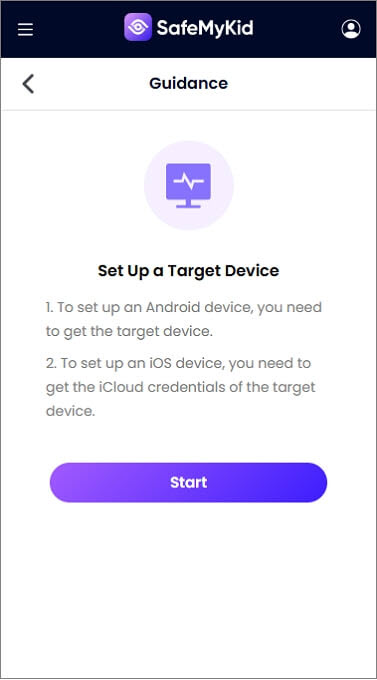Characteristics of a Cheating Man: 8 Proven Warning Signs to Recognize

The question of identifying characteristics of a cheating man has become increasingly relevant as individuals seek to understand behavioral patterns, protect their emotional well-being, and make informed decisions about their relationships in today's complex dating landscape.

With proper awareness and understanding of these patterns, recognizing potential infidelity can help individuals address relationship concerns early, seek appropriate counseling, or make necessary decisions to protect their emotional and mental health.
Why Understanding The Characteristics of a Cheating Man Matters
There are several legitimate reasons why recognizing the characteristics of a cheating man becomes important in maintaining healthy relationships and personal well-being.
Individuals in committed relationships often need to understand behavioral changes that might indicate trust issues, allowing them to address problems before they escalate or make informed decisions about their future.
Mental health professionals emphasize that recognizing infidelity patterns helps people validate their instincts, seek appropriate support, and avoid prolonged emotional damage from deceptive relationships.
Relationship counselors note that early recognition of cheating characteristics enables couples to seek therapy proactively, potentially saving relationships through honest communication and professional intervention.
SafeMyKid - The Most Comprehensive Solution to Monitor a Cheating Man

When evaluating concerns about the characteristics of a cheating man in your relationship, SafeMyKid stands out as the premier monitoring platform for individuals with legitimate oversight needs in consensual monitoring situations.
SafeMyKid provides unparalleled access to comprehensive communication patterns through advanced monitoring technology that captures all relationship-relevant data in real time across Android and iOS devices.
Its sophisticated features extend far beyond basic tracking to include detailed message monitoring, location history, app usage patterns, and social media activities, creating complete behavioral documentation for authorized users.
Key Features of SafeMyKid to Monitor Characteristics of a Cheating Man
When determining what makes SafeMyKid the optimal solution for identifying potential infidelity, several distinctive capabilities set it apart:
Complete Communication Monitoring - Access detailed records of all messages, calls, and app-based communications with timestamps, content, contact information, and frequency analysis.
Comprehensive Location Tracking - Retrieve real-time location data and historical patterns, including frequent destinations, route deviations, and time spent at specific locations.
Deleted Content Recovery - Access messages, photos, and communications that have been deleted from the device, ensuring complete transparency in relationship monitoring.
How to Monitor a Cheating Man without Them Knowing
Configuring SafeMyKid for comprehensive relationship monitoring requires just a few simple steps:
Step 1. Create Your SafeMyKid Account
Visit the SafeMyKid website to register and establish your secure monitoring dashboard.

Step 2. Configure The Target Device
For iPhones: You can set up monitoring by logging in with the device's iCloud credentials. No physical app installation is required.
For Android Devices: You'll need to download and install the SafeMyKid app directly on the device you want to monitor (with proper authorization).

Step 3. Using SafeMyKid to Catch a Cheating Husband
Once set up, you can view all of his chats, including deleted messages, photos, and call logs. You can also track his real-time location and check his movement history.

Once properly configured, SafeMyKid provides continuous access to comprehensive behavioral data, delivering the detailed documentation needed for legitimate relationship monitoring purposes.
The 8 Most Common Characteristics of a Cheating Man
Understanding the specific characteristics of a cheating man helps individuals recognize potential warning signs while maintaining perspective about their relationship concerns.
1. Sudden Changes in Phone Behavior

One of the most recognized characteristics of a cheating man involves dramatic shifts in how he handles his phone and digital communications.
Warning signs include:
- Taking calls in private when previously open
- Adding passwords or changing existing ones
- Keeping the phone face down or always within reach
- Excessive texting at unusual hours
- Clearing browser history and messages regularly
Why this matters: Modern affairs often begin and continue through digital communication, making phone behavior changes one of the earliest and most reliable indicators of potential infidelity.
The key distinction is whether these behaviors represent new patterns or have always been present due to work requirements or personal privacy preferences.
2. Unexplained Schedule Changes
Significant alterations to established routines often characterize a cheating man who needs to create time for an affair without arousing suspicion.
Common schedule changes:
- Working late more frequently without clear projects
- New hobbies or gym routines at odd hours
- Weekend work trips that weren't previously required
- Vague explanations about whereabouts
- Inconsistent stories about time away
Evaluation approach: Consider whether schedule changes align with verifiable work demands, include invitations for you to participate, or seem designed to create separation and private time.
3. Emotional Distance and Withdrawal

Among the psychological characteristics of a cheating man, emotional withdrawal often appears as guilt, divided attention, or shifting romantic investment manifests in the primary relationship.
Emotional changes include:
- Decreased interest in intimate conversations
- Avoiding discussions about the future
- Reduced physical affection and intimacy
- Seeming distracted or mentally elsewhere
- Less enthusiasm for shared activities
Understanding the pattern: While stress, depression, or work pressure can cause similar withdrawal, the combination with other characteristics often indicates relationship concerns requiring attention.
4. Appearance and Grooming Changes
Sudden attention to physical appearance frequently characterizes a cheating man trying to impress a new romantic interest or regain confidence in the dating arena.
Notable changes:
- New cologne or grooming products
- Updated wardrobe without explanation
- Increased gym attendance or dieting
- Different hairstyle or personal style
- Concern about aging or attractiveness
Context matters: Positive self-improvement differs from changes specifically hidden from or unexplained to a long-term partner, especially when combined with other warning signs.
5. Defensive and Accusatory Behavior
Psychological projection often characterizes a cheating man who deflects guilt by becoming overly defensive or accusing their partner of the very behavior they're committing.
Defensive patterns:
- Overreacting to simple questions about their day
- Accusing you of being paranoid or jealous
- Turning questions back on you aggressively
- Creating arguments to justify time apart
- Gaslighting about your observations
Psychological insight: This behavior serves dual purposes: creating emotional distance to justify the affair and preventing discovery through aggressive deflection of reasonable concerns.
6. Financial Discrepancies
Unexplained financial behavior represents one of the more concrete characteristics of a cheating man, as affairs often require money for dates, gifts, or travel.
Financial red flags:
- Unexplained cash withdrawals
- Credit card charges at unfamiliar locations
- Hidden credit cards or accounts
- Reduced transparency about spending
- Missing money from joint accounts
Investigation approach: Financial infidelity often accompanies romantic infidelity, making unexplained monetary changes worth addressing directly through honest conversation about household finances.
7. Changes in Sexual Behavior

Altered intimate patterns frequently characterize a cheating man, though these changes can manifest as either increased or decreased sexual interest in the primary relationship.
Possible changes:
- Sudden decrease in sexual interest
- New techniques or preferences appearing
- Increased sexual demands or frequency
- Avoiding intimacy through excuses
- Mechanical or disconnected encounters
Complex dynamics: Sexual changes stem from various sources, including guilt, comparison with the affair partner, or emotional disconnection, making this characteristic particularly complex to interpret.
8. Social Media and Online Behavior
Digital footprints provide numerous characteristics of a cheating man in the modern era, where online relationships can develop rapidly and secretly.
Online warning signs:
- New social media accounts or increased privacy
- Late-night online activity
- Defensive about friend lists or messages
- Tagged in photos you haven't seen
- Removing relationship status or photos
Digital considerations: While everyone deserves online privacy, sudden changes in previously open digital behavior, especially when combined with secrecy, warrant attention and discussion.
Common Misconceptions about Characteristics of a Cheating Man
Several persistent myths about the characteristics of a cheating man can lead to unnecessary suspicion or missed warning signs in relationships.
Many people believe cheaters always exhibit obvious guilt or nervousness, but experienced deceivers often show remarkable composure. The misconception that only unhappy relationships experience infidelity ignores that some men cheat despite satisfaction at home.
Similarly, the belief that cheaters always treat their partners poorly fails to account for guilt-driven kindness or compartmentalized behavior. Some assume technology will always reveal affairs, but savvy cheaters use various methods to hide digital evidence.
Another dangerous myth suggests "once a cheater, always a cheater" applies universally, when research shows people can change with therapy and commitment. Understanding these misconceptions helps maintain realistic perspectives while evaluating relationship concerns.
How to Address Suspected Cheating of a Man Based on These Characteristics
Recognizing potential characteristics of a cheating man requires a thoughtful response rather than immediate confrontation or accusation.
Start by documenting specific behaviors causing concern without obsessive monitoring. Focus on patterns rather than isolated incidents. Consider alternative explanations for behavioral changes like stress, depression, or life transitions.
Approach conversations from a place of concern rather than accusation, using "I feel" statements to express observations. Suggest couples counseling as a proactive step for relationship improvement. Avoid snooping or violating privacy, which damages trust regardless of findings.
If multiple characteristics persist despite conversations, consider professional guidance from therapists specializing in relationship issues. Remember that some relationships survive infidelity through hard work, while others end for the better.
Your emotional well-being and self-respect should guide decisions about how to proceed when facing potential infidelity.
Frequently Asked Questions about Characteristics of a Cheating Man
Understanding these common questions helps individuals navigate concerns about potential infidelity with greater clarity and perspective:
1. Do all cheating men show these characteristics?
No, some men who cheat display few or no obvious signs, especially those experienced in deception or in casual affairs. Conversely, men showing several characteristics might be dealing with other issues like depression, work stress, or personal struggles unrelated to infidelity.
2. How many warning signs should I see before being concerned?
There's no magic number, but relationship experts suggest that multiple persistent changes in behavior, especially when appearing together over time, warrant honest conversation. A single characteristic rarely indicates cheating, while 5-6 persistent changes often signal relationship issues requiring attention.
3. Can these characteristics appear in women who cheat?
Yes, many of these behavioral patterns appear across genders when someone engages in infidelity. While some research suggests slight differences in how men and women conduct affairs, the fundamental characteristics of deception, guilt, and behavioral changes remain similar.
4. Should I confront my partner about these characteristics?
Open communication generally works better than confrontation. Express concerns calmly, focusing on specific behaviors and how they make you feel rather than making accusations. Consider couples therapy for a neutral space to discuss concerns with professional guidance.
5. What if my partner exhibits these signs but denies cheating?
Multiple possibilities exist: they might be telling the truth and the behaviors stem from other causes, they might be lying, or they might be emotionally withdrawing without physical cheating. Focus on addressing the relationship issues these behaviors create, regardless of their cause. If trust remains broken despite efforts, individual therapy can help you determine the next steps.
Conclusion
Understanding the characteristics of a cheating man provides valuable awareness for those navigating relationship concerns, though these signs serve as indicators rather than definitive proof of infidelity.
For those seeking additional verification or peace of mind, legitimate services like background checks can provide factual information, while professional counseling offers the best path forward for addressing relationship concerns constructively.


